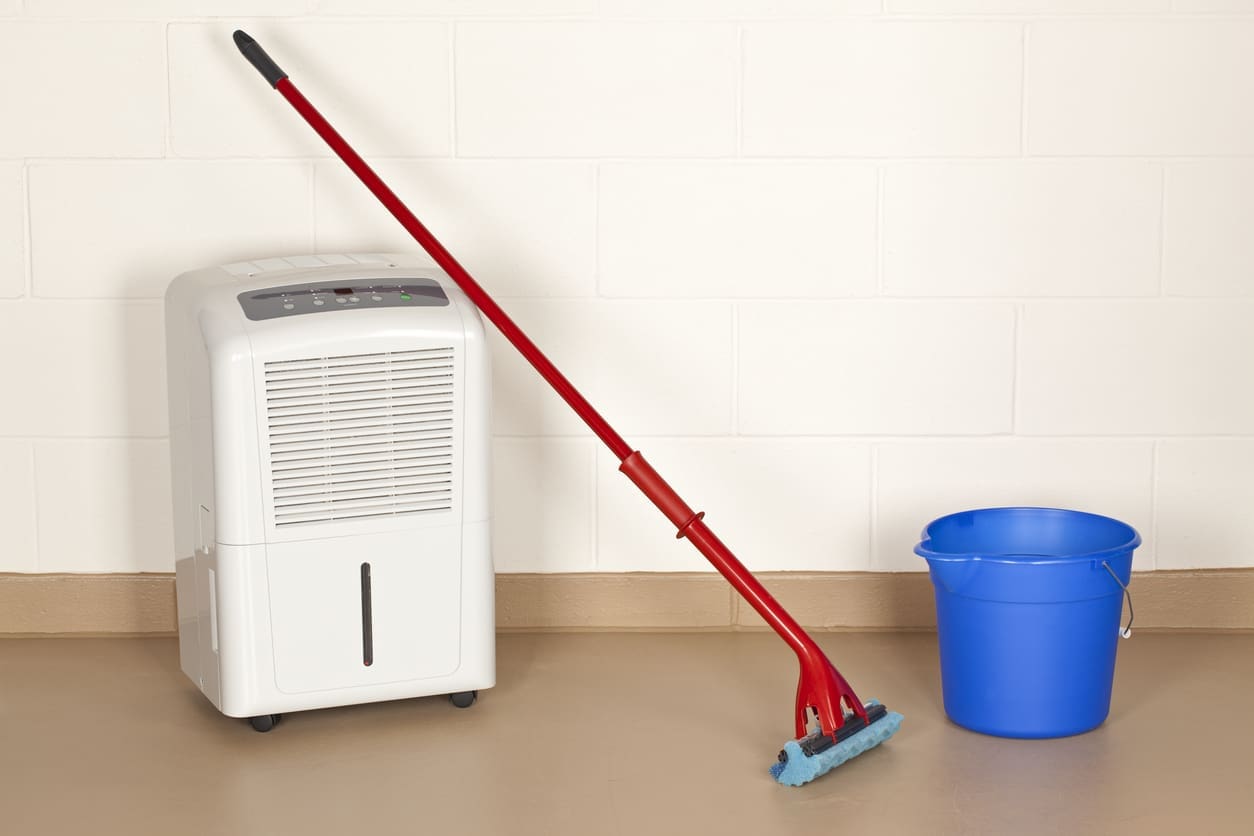Resources
Do I Need a Dehumidifier in My Basement?

If you’re a homeowner with a basement, you may have asked yourself, do I need a dehumidifier in my basement? Basements are notorious for being damp and musty, and high humidity levels can lead to various problems, from mold growth to structural damage. In this blog post, we’ll explore the benefits of using a dehumidifier, signs that you might need one, and how to choose the right size dehumidifier for your basement.
The Importance of Basement Humidity Control
Basements are prone to moisture problems due to their location below ground level. Water can seep in through foundation cracks, and humidity levels can rise, creating an ideal environment for mold and mildew. High humidity can also lead to unpleasant odors and can even damage your home’s structure over time.
A dehumidifier helps to maintain an optimal humidity level, typically between 30% and 50%. By removing excess moisture from the air, a dehumidifier can prevent mold growth, reduce musty odors, and protect your home’s foundation and walls. Additionally, controlling humidity levels can improve indoor air quality, making your home healthier and more comfortable.
Signs You Need a Dehumidifier in Your Basement
If you’re wondering whether you need a humidifier in your basement, there are several signs that indicate it might be necessary. One of the most noticeable signs is the presence of musty odors. If your basement smells damp or musty, it’s a clear indication of high humidity levels. This odor is often caused by mold and mildew, which thrive in moist environments.
Another sign to watch for is visible mold growth. Mold can appear on walls, floors, and even furniture stored in your basement. Mold not only looks unsightly but can also pose health risks, especially for individuals with allergies or respiratory issues. If you notice mold, it’s crucial to address the humidity problem to prevent it from spreading.
Additionally, condensation on windows or pipes in your basement is a clear sign of excess moisture in the air. This condensation can lead to water damage over time and may contribute to the growth of mold and mildew.
High humidity levels can also cause wood in your basement to warp or rot. If you notice any signs of wood damage, it could be due to prolonged exposure to moisture. Controlling the humidity with a dehumidifier can help protect wooden structures and furniture in your basement.
Choosing the Right Size Dehumidifier for Your Basement
Once you’ve determined that you need a dehumidifier, the next step is to choose the right size. So, what size dehumidifier for the basement is best? The size of the dehumidifier you need depends on the square footage of your basement and the level of humidity.
For small basements (less than 1,000 square feet) with moderate humidity levels, a 30-pint dehumidifier is typically sufficient. For larger basements (up to 2,500 square feet) or those with higher humidity, you may need a 50-pint or even a 70-pint dehumidifier. It’s always a good idea to choose a slightly larger unit if you’re unsure, as it will be more effective in reducing humidity levels.
If you’re still in need of guidance, onsider using an online dehumidifier size calculator or consult with a professional. They can help you determine the appropriate size based on your specific conditions and needs.
Benefits of Using a Dehumidifier in Your Basement
Using a dehumidifier in your basement offers numerous benefits. First and foremost, it helps to prevent mold and mildew growth. Mold can cause a variety of health issues, including allergic reactions and respiratory problems. By controlling the humidity, you can create an environment that is less conducive to mold growth.
A dehumidifier also helps to reduce musty odors, making your basement a more pleasant place to spend time. Whether you use your basement for storage, as a living space, or as a recreational area, controlling the humidity can make it more comfortable and inviting.
In addition to improving air quality and comfort, a dehumidifier can also protect your home’s structure. Excess moisture can weaken the foundation and cause wood to rot. By maintaining optimal humidity levels, you can help preserve the integrity of your home.
Maintaining Your Dehumidifier
To ensure your dehumidifier operates efficiently, regular maintenance is essential. Clean the filter regularly to prevent dust and debris from clogging it. Check the water collection bucket and empty it as needed, or consider using a model with a continuous drainage option for convenience.
It’s also important to place your dehumidifier in an optimal location. Ensure there is adequate space around the unit for airflow, and avoid placing it near walls or furniture. By following these maintenance tips, you can maximize the effectiveness of your dehumidifier and extend its lifespan.
Conclusion
In conclusion, a dehumidifier can be a valuable addition to your basement, helping to control humidity levels and prevent issues such as mold growth, musty odors, and structural damage. If you’ve noticed signs of excess moisture, it may be time to invest in a dehumidifier.
For all your crawl space and wet basement needs, contact Michigan Basements. Our experts can help you choose the right dehumidifier and provide solutions to keep your basement dry and comfortable. Don’t wait—reach out to us today to ensure your basement remains a healthy and pleasant part of your home.


